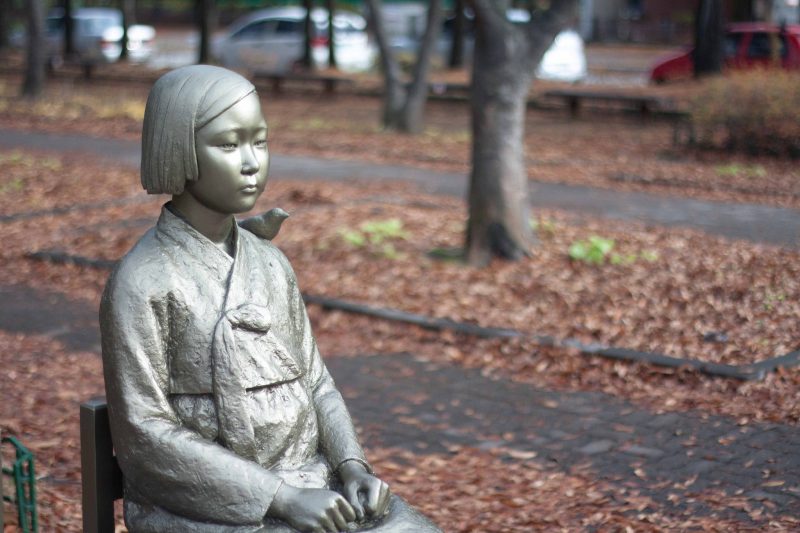The issue of the enforced prostitution of Korean, Chinese, Dutch and Australian women by the Japanese during WWII has once again caused a war of words between the Japanese and Korean communities, this time in Sydney, Australia.
Since the end of hostilities, the Japanese refused to accept responsibility for the so-called ‘comfort women’ and it was not until last year that Japan and South Korea reached an agreement about the issue, and Japan agreed to pay compensation to the women used in this manner who were still alive.
The Exodus Foundation, a charity run by the Uniting Church, in conjunction with the Sydney Korean Community intends to erect a bronze statue in the charity’s gardens in Ashfield later this year if the local Canterbury-Bankstown Council does not erect the statue themselves.
The founder of The Exodus Foundation, Reverend Bill Crews, was very clear that the foundation fully intended to erect the statue in their gardens and refuted claims that it was racist, saying he did not want history whitewashed. He went on to say in an interview with ABC, “This isn’t just a diatribe against Japan, it’s about the way women get treated in all wars. And the way men treat women. It’s also about the dark side of human nature.”
A meeting has been held between The Exodus Foundation, the Australian Minister for Multiculturalism, John Ajaka, and the Japanese Consul-General. After the meeting, Rev. Crews said, “basically their concern was three words: ‘Japanese’ and ‘comfort women’ … they were very concerned about community conflict.”
The degree of contention regarding the statue is clearly identified in a letter sent by the Australia-Japan Community Network to the Canterbury-Bankstown Council in late June. The letter states that the statue would constitute a breach of Australia’s Racial Discrimination Act as it would be “reasonably likely, in all the circumstances, to offend, insult, humiliate or intimidate another person or a group of people.”
Additionally, a letter sent to Reverend Crews, by the President of the Australia-Japan Community Network, Tesshu Yamaoka, stated that the statue had political connotations in that its erection was being driven by activists ostensibly connected to North Korea.
These allegations are categorically denied by The Exodus Foundation. A member of the Foundation’s Peace Statue Establishing Committee, Vivian Pak, made it clear that the statue had peaceful connotations not warlike ones. She said, “It hasn’t got anything to do with social division. I would love to have Japanese community members come on board … they’re our friends, you know – we can make a peaceful relationship with them. This is all about calling of an end to war and violence, and security of human rights.”
It is not likely that this issue will be resolved quickly as emotions run high on both sides. The fact that Japan has accepted responsibility for this and given an apology and compensation should see an end to conflict over this issue, but clearly, it is still a bitter pill for the Japanese people as a whole to swallow. Reverend Crews summed it up by saying, “In this place we don’t accept violence against people, we don’t accept people being abused, we don’t accept people being sexually exploited. Those sorts of things are always wrong, no excuses, and a statue like this going up says ‘this is wrong’.”
